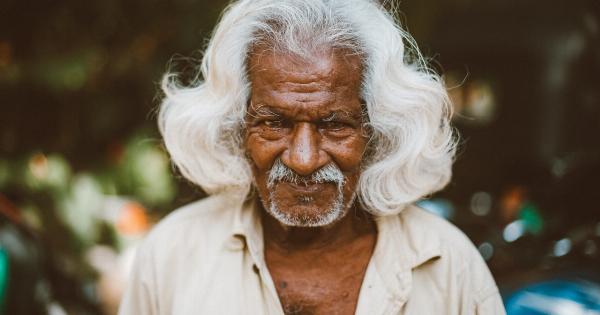Summer nights are a time for fun and relaxation, but for seniors, they can also come with dangers that are important to be aware of.
As the temperature rises and the days get longer, it’s important for seniors and their loved ones to take precautions to ensure their safety. In this article, we will explore the dangers that summer nights can pose for seniors and provide some essential precautions to follow.
The Dangers of Summer Nights
1. Heat-Related Illnesses.
The heat of summer nights can be particularly dangerous for seniors, as their bodies may have a more difficult time regulating temperature. Heat-related illnesses such as heat exhaustion and heat stroke can occur if precautions are not taken.
Symptoms of heat-related illnesses include dizziness, rapid heartbeat, nausea, confusion, and even loss of consciousness.
2. Dehydration.
The hot summer nights can also lead to dehydration, which can have serious consequences for seniors. Dehydration can cause symptoms such as dry mouth, fatigue, headaches, and even confusion.
It’s important for seniors to stay hydrated by drinking plenty of water and avoiding excessive amounts of caffeine or alcohol.
3. Falls and Injuries.
During summer nights, it can be more difficult to see hazards such as uneven pavement or obstacles in the dark. This increases the risk of falls and injuries, especially for seniors who may already have mobility issues.
Falls can result in fractures, sprains, and other serious injuries, so it’s crucial for seniors to take extra precautions when navigating outdoor areas during summer nights.
4. Mosquito-Borne Illnesses.
Summer nights are also prime time for mosquitoes, which can transmit diseases such as West Nile virus or Zika virus. Seniors may be more vulnerable to these illnesses due to weakened immune systems.
It’s important to take precautions to prevent mosquito bites, such as using insect repellent, wearing protective clothing, and staying indoors during peak mosquito activity.
Precautions for Seniors
1. Stay Hydrated.
Encourage seniors to drink plenty of water throughout the day, especially during summer nights.
Remind them to carry a water bottle with them when going outdoors and to avoid excessive amounts of caffeine or alcohol, as these can contribute to dehydration.
2. Dress Appropriately.
Suggest that seniors wear lightweight, breathable clothing during the summer nights. Opt for light-colored clothing to reflect heat and avoid dark colors that absorb it.
Wearing a wide-brimmed hat and sunglasses can also provide protection from the sun’s harmful rays.
3. Use Sunscreen.
Apply sunscreen with a high SPF before going outdoors, even during summer nights. Sunburn can occur even when it’s not bright and sunny, as harmful UV rays can still penetrate the skin.
This is especially important for seniors with fair skin or a history of skin cancer.
4. Stay Cool.
Keep indoor spaces cool and well-ventilated with the use of fans or air conditioning. If seniors need to go outdoors, encourage them to limit their time during the hottest parts of the day and seek shade whenever possible.
5. Use Insect Repellent.
Apply insect repellent containing DEET or other recommended ingredients to prevent mosquito bites during summer nights. Remember to follow the instructions on the packaging and reapply as necessary.
Seniors should also consider wearing long sleeves and pants to minimize exposed skin.
6. Use Proper Lighting.
Ensure outdoor areas are well-lit to reduce the risk of falls and injuries during summer nights. Consider installing motion-sensor lights or using portable options such as flashlights or lanterns when walking around outside.
7. Stay Connected.
Encourage seniors to carry a cell phone with them when going outdoors, especially during summer nights. This will ensure they can quickly seek help in case of emergencies or accidents.
Having a personal emergency response system, such as a medical alert bracelet or pendant, can also provide an extra layer of security.
8. Stay Informed.
Keep up-to-date with local weather forecasts and any heat advisories or mosquito warnings in your area. Being aware of potential hazards can help you take the necessary precautions to protect seniors from dangers during summer nights.
9. Stay Social.
Loneliness and isolation can have a negative impact on seniors’ well-being. Encourage seniors to stay socially connected by participating in community activities or engaging with friends and family.
This can help combat feelings of loneliness and improve mental and emotional health.
10. Regular Check-ups.
Regular visits to healthcare professionals are essential for seniors. Schedule check-ups to ensure that any underlying health conditions are effectively managed and consider discussing specific summer-related concerns with their healthcare provider.
Conclusion
While summer nights can be enjoyable and bring a sense of excitement, it’s important for seniors to be aware of the potential dangers and take necessary precautions.
By staying hydrated, dressing appropriately, using sunscreen and insect repellent, and taking other safety measures, seniors can enjoy the warm summer nights while minimizing the risks. Remember to stay informed, connected, and prioritize regular check-ups to maintain optimal health and well-being during this season.






























